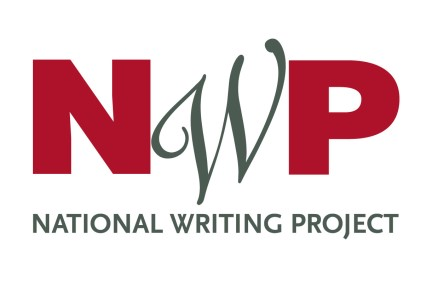History
The Kennesaw Mountain Writing Project (KMWP) was established in 1994 on the campus of Kennesaw State University (KSU). Funded by the National Writing Project (NWP), the KMWP was born of the cooperative efforts of the Kennesaw State English Department and Cobb County, Georgia, Public Schools in order to serve metro Atlanta and the suburban and rural counties that form northwest Georgia.
Originally directed by Sarah Robbins, the KMWP began its work by addressing our two goals consistent with the NWP model of teachers teaching teachers:
- to prepare educators, K-through-university, to apply what they learned during an intense Summer Invitational Institute by becoming more effective teachers of writing in their own classrooms and
- to prepare teacher leaders who could serve as mentors or teacher consultants-teaching colleagues the best practices for literacy instruction.
The inaugural Summer Institute brought together more than twenty teachers. The 1994 KMWP fellows focused heavily on writing by keeping daily logs, writing personal reflections, generating argumentative writing, and contributing narratives for publication in their anthology. They participated in teacher demonstrations and met in writing response groups, which fostered a supportive atmosphere for the fellows to discuss their writing techniques and styles. All of the activities promoted open dialogue about the teaching of writing in today’s classrooms.
This founding group of the KMWP’s new site also devoted considerable energy to planning for the future of NWP work in KSU’s service area. They imagined and laid the foundation for many of the programs sponsored by the KMWP in the years that followed.
When the Institute ended, the fellows’ association with the KMWP did not. The KMWP introduced a permanent Affiliate Continuity Program that would bring the fellows and their successors—now considered Teacher Consultants (TC) — together in subsequent months and years to participate in additional professional development activities building on the institute framework.
In the years since 2004, KMWP TCs have also led numerous staff development projects such as (a) workshops and seminars in local schools during the academic year, (b) institutes for teachers during the summer, and (c) specialized programs for educators already affiliated with the site.
Every Summer Institute since 1994, the KMWP has continued to refine its Summer Institute curriculum, consistent with the NWP model. One element of this work has involved having past Institute fellows return to assist newcomers as mentors—teacher-leaders and facilitators of reading and writing groups at the Institute. At Summer Institutes now, the primary members of the instructional team are past fellows, with the staff changing each year to combine a mix of experienced facilitators as well as TCs returning to Institute leadership for the first time.
Building on that foundation, the KMWP has added to its repertoire of programs each year, making our project a continuous enterprise.
For example, in 1995, we convened history and English educators to study 19th-century American women writers. This program, called “Domesticating the Secondary Canon,” was funded by a grant from the National Endowment for the Humanities (NEH).
By 1996, we were involved in 40 separate in-service programs, and we joined Project Outreach, an initiative of the NWP, to serve high-risk learners and to improve professional development for teachers working in low-income communities. We launched a summer honors program for high school students with the theme “Writing New Horizons.” We networked with fellows nationwide to create new teacher development models and a procedure for self studies at the NWP.
In 1997, we offered a second summer honors program with the theme “What it Means to be an American.” For the first time, alumni of our Summer Institute program helped to select readings and activities for the next Summer Institute, especially to serve teachers working with low-income students.
Throughout 1998 and 1999, with NWP sites from California and Michigan, the KMWP worked on the two-and-a-half year NEH-funded project, “Making American Literatures,” to study changes in the teaching of American Literature over the previous half-century. Like Project Outreach, our work on this program enhanced our staff development offerings in following years.
Beginning in 2000, the KMWP organized the “Keeping and Creating American Communities” (KCAC) project, a major curriculum project funded primarily by the NEH to support writing-intensive, interdisciplinary study of community life.
The KMWP has participated in a number of NWP-funded specialty initiatives, including programs focused on teaching with technology, on social action in the classroom, on teachers’ inquiry groups, and on instruction of ESL/ELL students.
In this new century, KMWP continues to grow. We have taken advantage of NWP’s minigrants to fund initiatives through the Rural Sites, Urban Sites, and English Language Learners networks. Our KCAC project has been especially productive, resulting in conferences, publications, and student performances. We have expanded our website to reflect the breadth and depth of our programs, and we hope to make it an instrument for research and writing.
Three books sharing our learning from the KCAC project are Writing America: Classroom Literacy and Public Engagement, co-edited by Mimi Dyer and Sarah Robbins; Writing Our Communities: Local Learning and Public Culture, co-edited by Dave Winter and Sarah Robbins; and Teachers’ Writing Groups, co-edited by George Seaman, Kathleen Blake Yancey, Dede Yow, and Sarah Robbins.
Guiding the KMWP’s continuing growth is the site’s Advisory Council, an elected group of teacher-leaders who meet several times each year to monitor and support program development. Led by a chair chosen from KMWP affiliates, the Advisory Council encourages all affiliated teachers to join with Council members in several active committees.
In 2007, leadership of the KMWP transitioned to Dawn Latta Kirby, Professor of English/English Education at KSU. In 2010, Dr. Kirby also assumed the position of Associate Dean in the College of Humanities and Social Sciences.
In fall 2011, Jennifer Dail was selected to lead the KMWP forward in the transition to locally funded work while maintaining a working relationship with the NWP.












